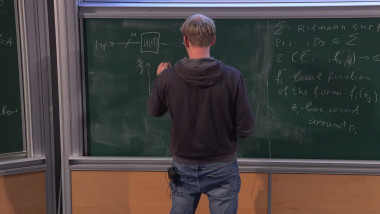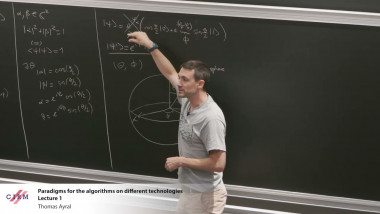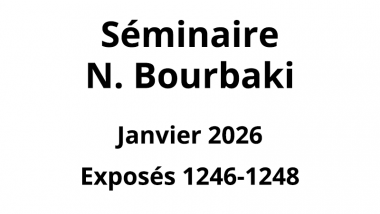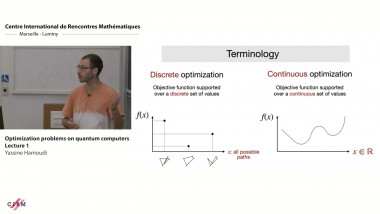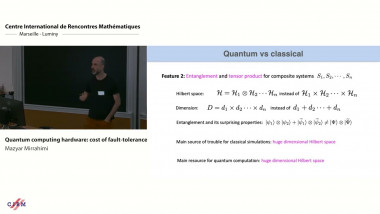Apparaît dans la collection : 2024 - T1 - WS1 - Quantum simulators
In this presentation, we consider situations where the existence of a contiguous cascade of quantum resonant transitions is predicated on the validity of a particular statement in number theory. As a case study, we look at the following trivial statement: "Any power of 3 is an integer."
Consequently, we "test" this statement in a numerical experiment where we demonstrate an un-impeded upward mobility along an equidistant, log(3)-spaced subsequence of the energy levels of a potential with a log-natural spectrum, under a frequency log(3) time-periodic perturbation. With the knowledge gained in this project, we consider similar schemes aimed at two more number-theoretical statements: "Any product of two sums of two squares of integers is a sum of two squares of integers" (this one can be proven using the Diophantus-Brahmagupta-Fibonacci identity) and "Any even is a sum of two primes" (i.e. the Goldbach conjecture, still unproven).
The empirical relevance of all three projects is ensured by the current experimental progress in creating cold-atomic potentials with a tailored quantum spectrum, in the laboratory of Donatella Cassettari (U of St. Andrews).
In collaboration with Oleksandr Marchukov, Andrea Trombettoni, Giuseppe Mussardo, and Donatella Cassettari.

